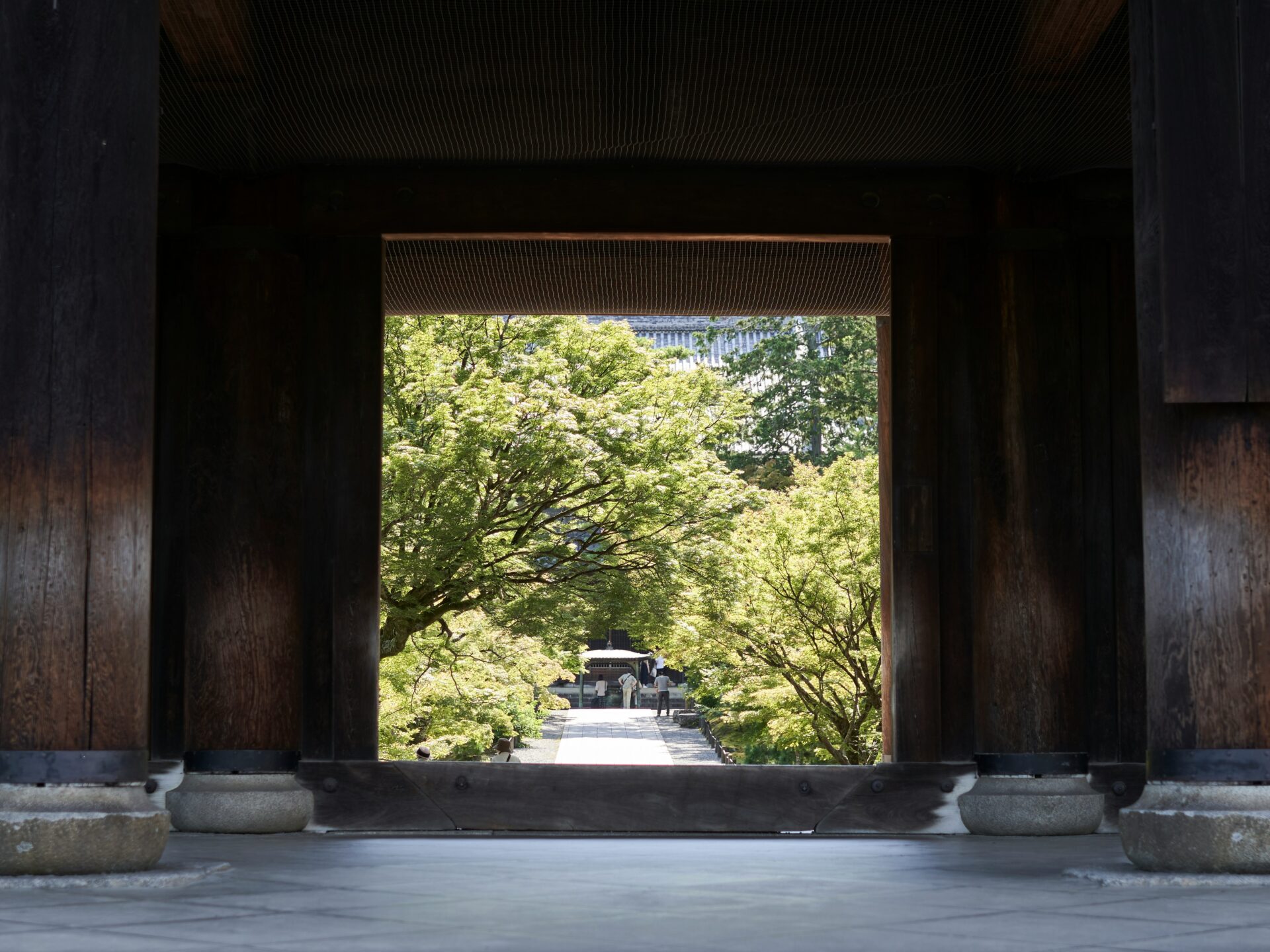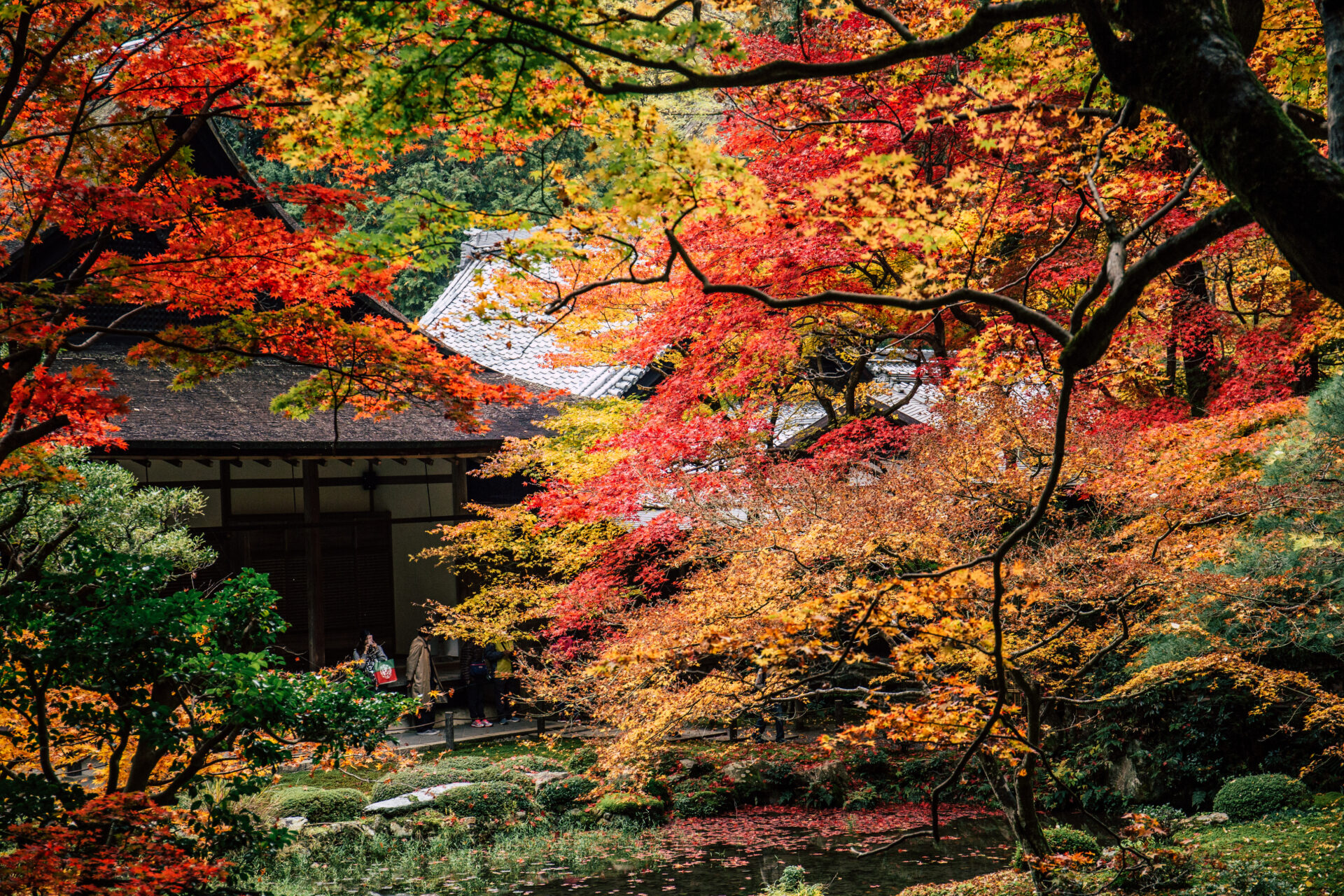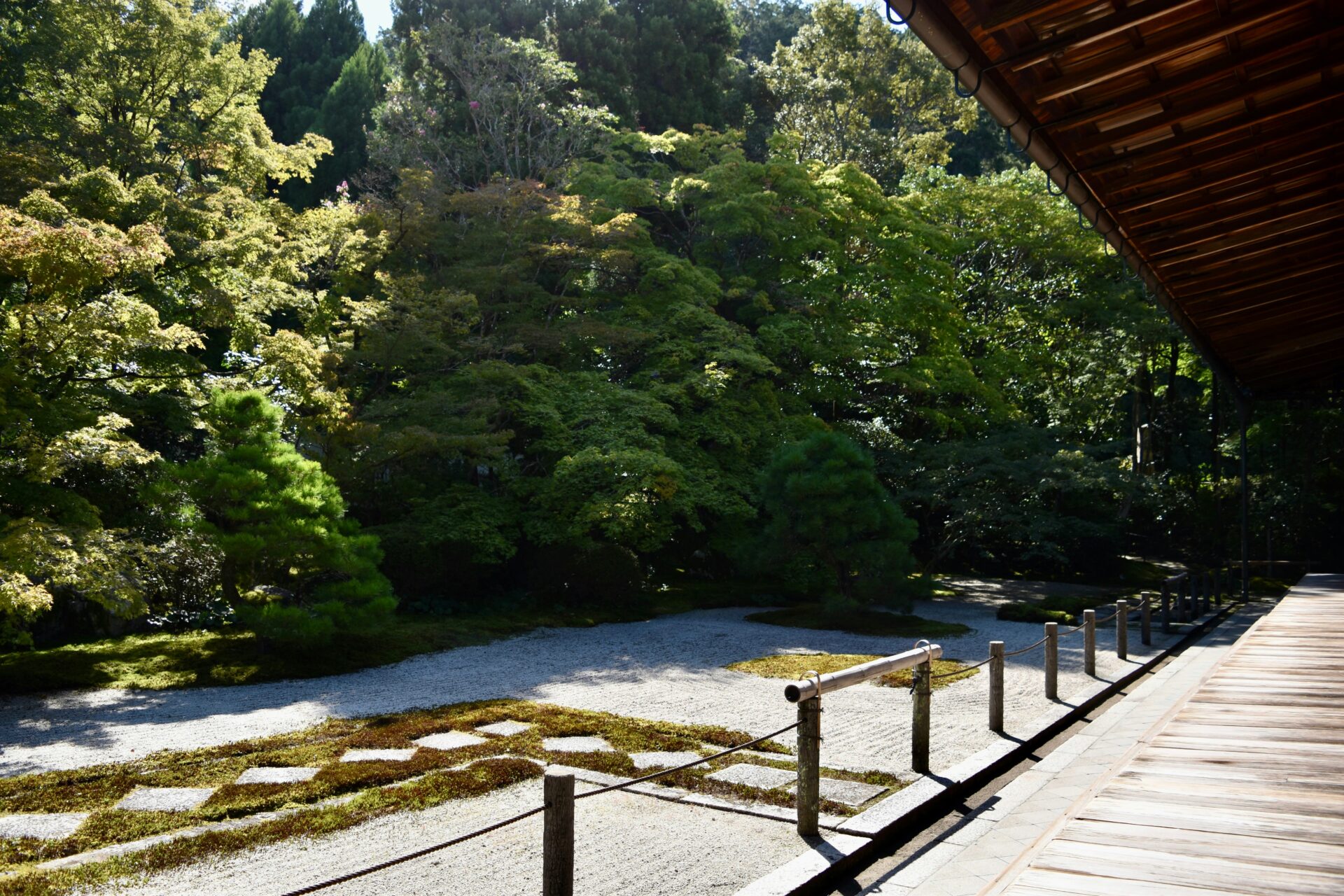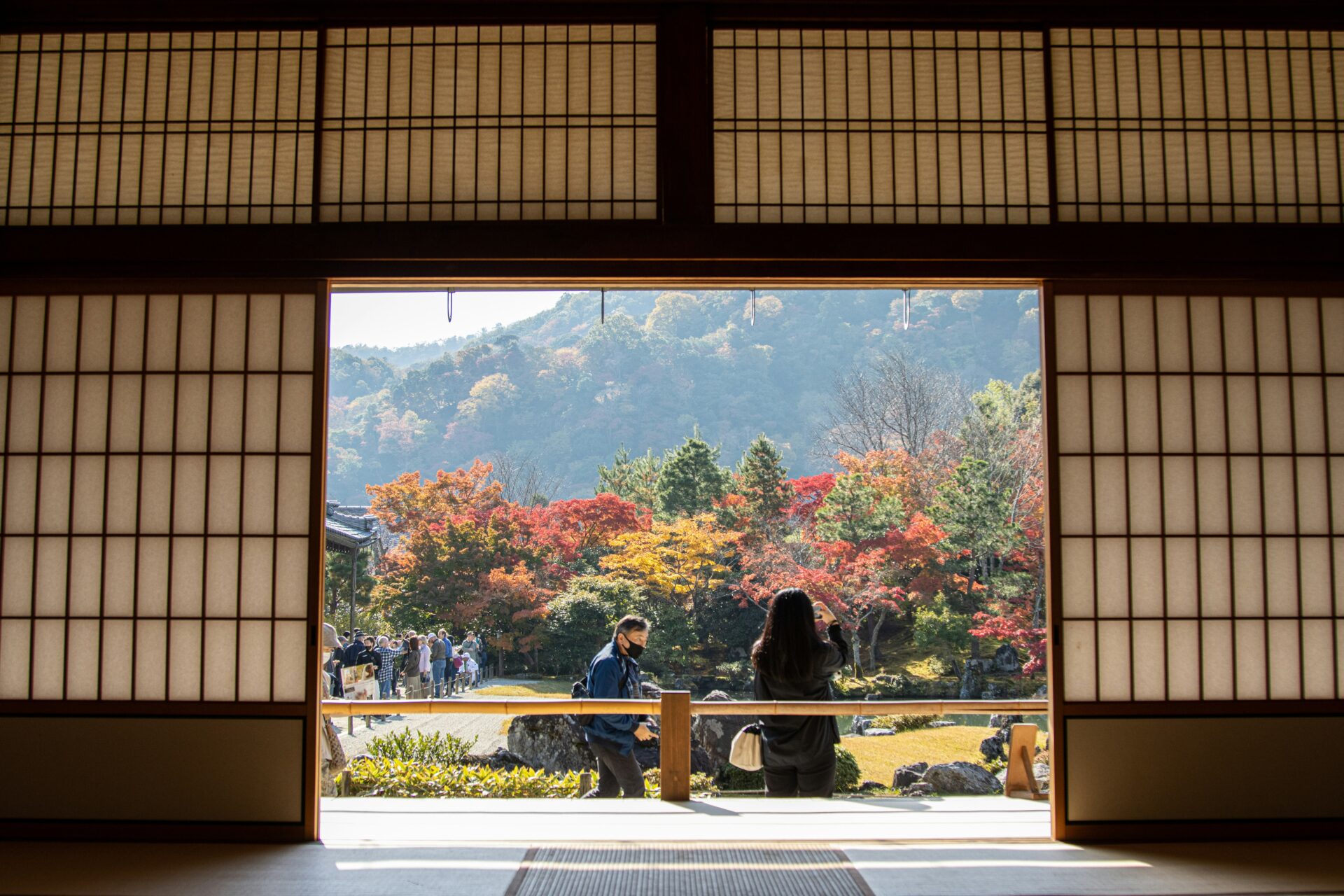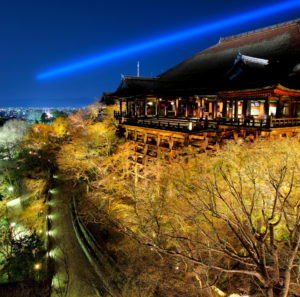Visit Time: 8:30 AM – 10:00 AM
Nanzen-ji Temple
As the highest-ranked of the Kyoto Gozan (Five Great Zen Temples), Nanzen-ji is renowned for its grand Sanmon gate and beautiful gardens. Visiting in the early morning allows you to experience the serene atmosphere of Zen. The aqueduct within the temple grounds is also a popular photo spot.
Google Maps: Nanzen-ji Temple
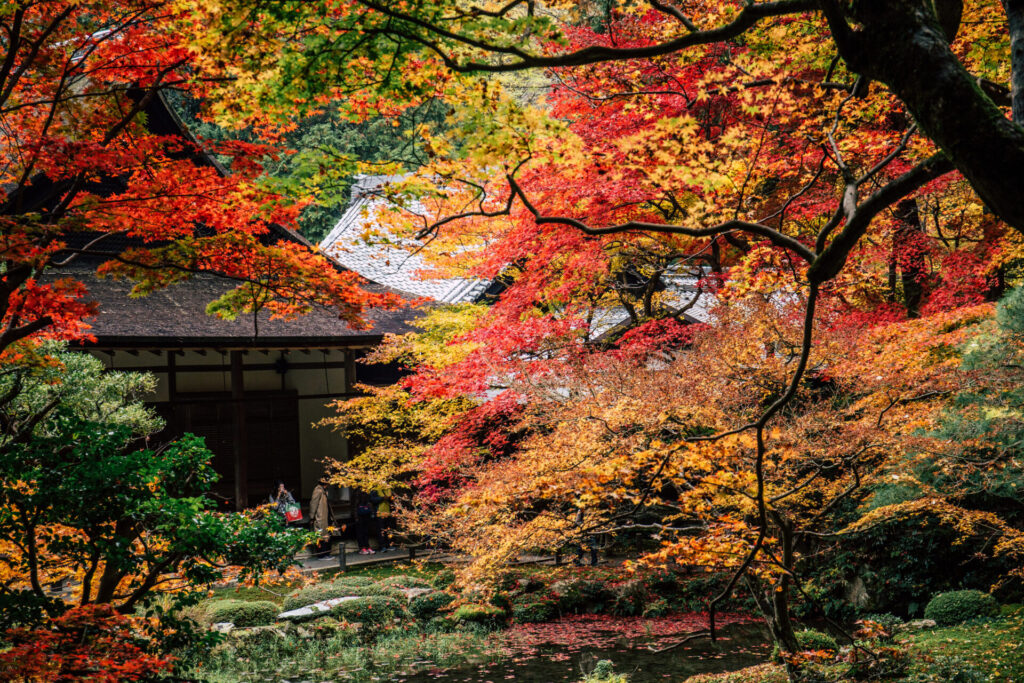
Visit Time: 10:30 AM – 12:00 PM
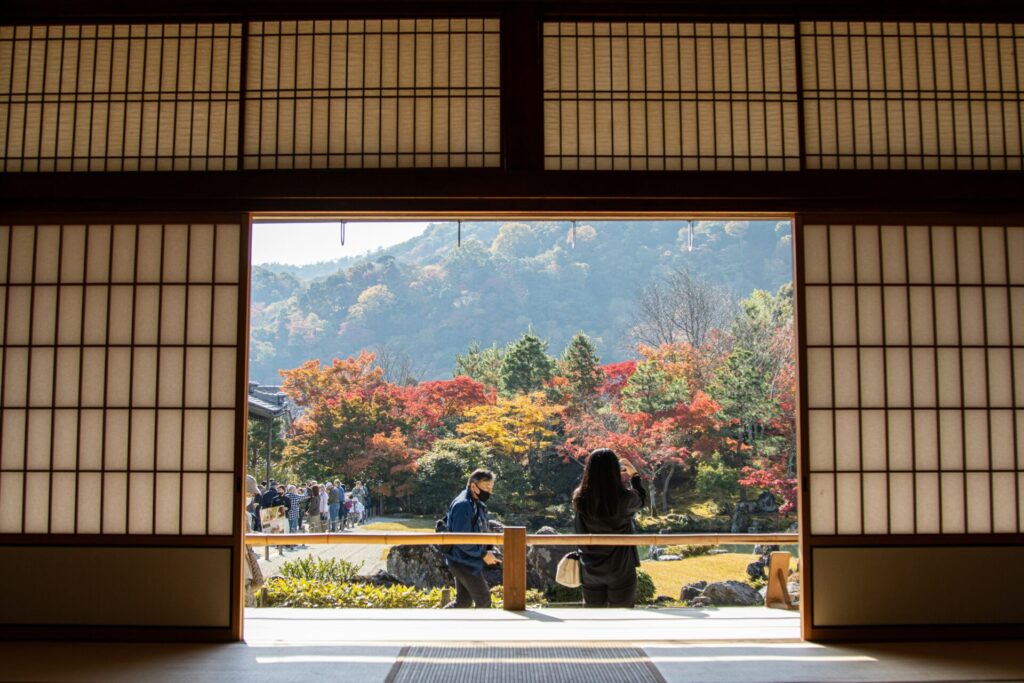
Tenryu-ji Temple
A UNESCO World Heritage site, Tenryu-ji Temple is located in the Arashiyama area and features a beautiful garden with a central pond. The harmony between Zen tranquility and the beauty of nature is particularly striking during the autumn foliage season.
Google Maps: Tenryu-ji Temple
Lunch
Shojin Ryori in the Arashiyama Area
Visit Time: 12:00 PM – 1:00 PM
Overview: Enjoy a traditional Zen Buddhist meal, shojin ryori, in one of the restaurants near Tenryu-ji. This simple, healthy cuisine reflects Zen principles of mindfulness and simplicity.
Visit Time: 1:30 PM – 3:00 PM
Ryoan-ji Temple
Ryoan-ji is famous for its minimalist rock garden. Gazing at this garden, you can experience the Zen teaching of “mu” (nothingness). The combination of white gravel and stones is designed to calm the mind and lead to deep meditation.
Google Maps: Ryoan-ji Temple
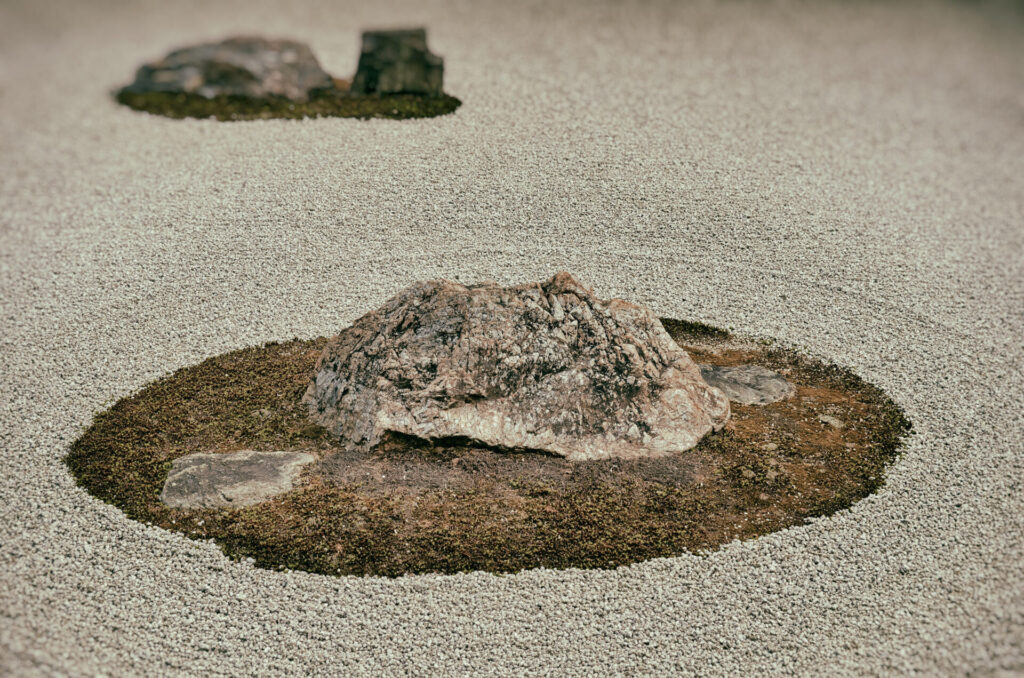
Visit Time: 3:30 PM – 5:00 PM

Daitoku-ji Temple
Daitoku-ji is a large Zen temple complex with many sub-temples, each offering unique gardens and tea rooms. The Zen aesthetics in temples like Zuiho-in and Koto-in provide a deep connection with nature and tranquility.
Google Maps: Daitoku-ji Temple
Visit Time: 5:30 PM – 6:30 PM
Kennin-ji Temple
As the third-ranked of the Kyoto Gozan, Kennin-ji was founded by the influential monk Eisai. In the evening, the temple is quieter, allowing for peaceful exploration. The Twin Dragons painted on the ceiling of the Hojo are particularly impressive.
Google Maps: Kennin-ji Temple
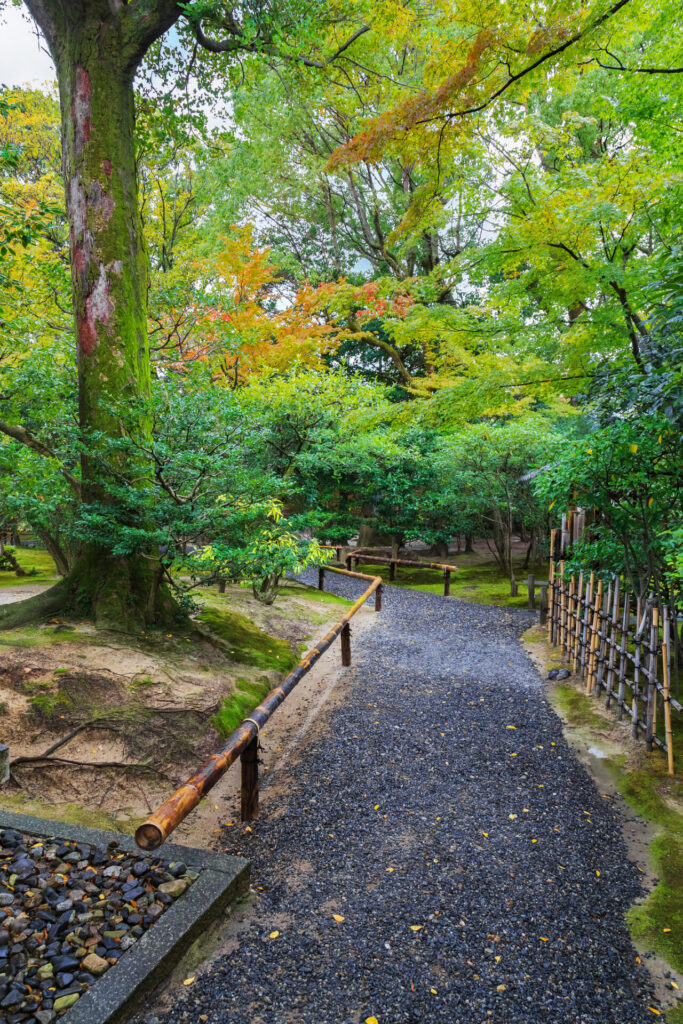
Evening 7:00 PM – 8:30 PM
Dinner in the Gion Area
Conclude your day with a traditional Kyoto meal or more shojin ryori in the Gion area. The calm and refined atmosphere is perfect for reflecting on your Zen experience throughout the day.

This day trip allows you to immerse yourself in Kyoto’s rich Zen culture, with peaceful moments in beautiful temples and gardens. Each temple’s Google Maps link is included for easy navigation.

The Philosophy of Zen and Its Influence
At the heart of Zen lies the pursuit of truth through immediate experience. It values intuitive insight over theoretical knowledge, encouraging practitioners to achieve a state of mindfulness and clarity in everyday actions. This approach to life—embracing simplicity, harmony, and the present moment—has been widely embraced in various cultural expressions, including traditional arts like tea ceremony, calligraphy, and garden design.
In modern times, Zen’s influence extends to practices such as mindfulness meditation, which helps individuals find inner peace amid the stresses of contemporary life. The principles of Zen have also permeated global culture, inspiring everything from minimalist design to business strategies that prioritize focus and efficiency.
Steve Jobs and the Influence of Zen
One of the most notable figures influenced by Zen philosophy is Steve Jobs, the co-founder of Apple. During the 1970s, Jobs traveled to India and later studied Zen under the guidance of Zen master Kobun Chino Otogawa in California. Zen deeply impacted Jobs, shaping his life philosophy and his approach to business and design.
Jobs famously integrated the Zen principle of “simplicity” into Apple’s products and corporate culture. He believed that “simplicity is the ultimate sophistication,” a philosophy that guided Apple’s product design. By stripping away unnecessary features, Jobs focused on creating intuitive, user-friendly devices that reflect the Zen aesthetic of minimalism and clarity. This pursuit of simplicity became one of the cornerstones of Apple’s success.
Moreover, Jobs adopted the Zen teaching of focusing on the present moment. He relied on his intuition, often making bold decisions based on a deep sense of what felt right. This approach led to the creation of revolutionary products that changed the world, such as the iPhone and the Mac.
The Universal Value of Zen
Steve Jobs’ example demonstrates that Zen is highly practical in the modern world. Its teachings help individuals cultivate a deep understanding of themselves and maintain inner calm in the face of external distractions. Just as Zen influenced Jobs’ innovation and vision, it continues to inspire creativity and insight in various fields, from business to art and beyond.
Zen, therefore, is more than just a religious practice; it is a way of life that continues to profoundly influence the modern world. Through figures like Steve Jobs, Zen’s value has been recognized and embraced globally, underscoring its enduring relevance and universal appeal.

